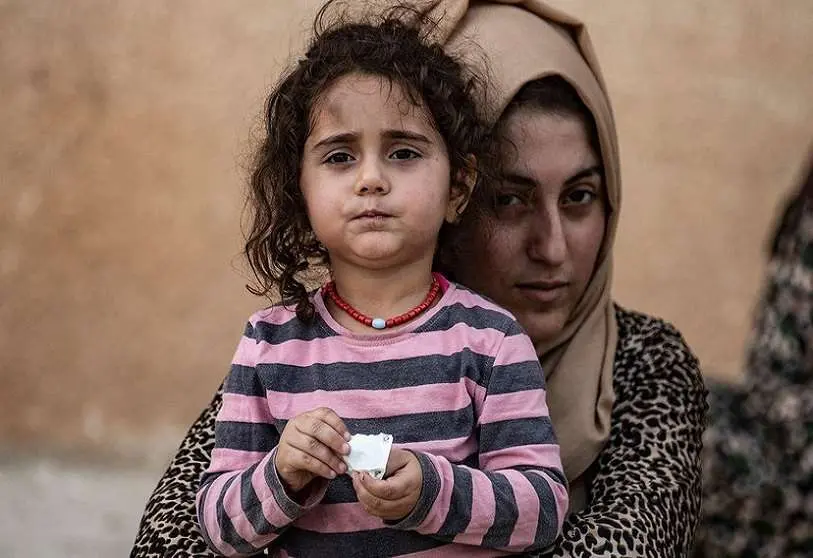The big losers from unilateral sanctions are women, children and vulnerable groups

Unilateral sanctions are particularly harmful to the human rights of women, children and other vulnerable groups within the populations of targeted countries, said the Special Rapporteur* on the negative impact of unilateral coercive measures on the enjoyment of human rights.
"We already know that unilateral sanctions prevent the populations of targeted countries from fully enjoying their human rights; and that the impact is particularly severe for vulnerable groups," said Alena Douhan.
"In addition to women and children, these groups include indigenous people, persons with disabilities, refugees, internally displaced persons, migrants, people living in poverty, the elderly, people affected by serious diseases and others facing particular challenges in society," she added.
Douhan recalled that vulnerable groups are often the most dependent on social or humanitarian aid, but that this cannot be provided, despite existing exemptions, because of sanctions.
"The complexity of sanctions regulations, coupled with extraterritorial application and heavy penalties, have caused entities to overdo compliance with unilateral sanctions for fear of the consequences of unintended violations," said Douhan.
She noted that because of this situation, "banks are reluctant to finance aid or process transactions for humanitarian purchases, and transport companies refuse to handle shipments of humanitarian goods. Humanitarian organisations have sometimes stopped operating in sanctioned countries because of these difficulties," she said.
The Special Rapporteur noted that sanctions often include fuel embargoes and prevent sanctioned countries from obtaining parts to maintain vital infrastructure for daily life, such as food, water, sanitation, health and electricity supply systems.
"When a country cannot obtain fuel, medicines and medical equipment cannot be delivered and people cannot go to hospitals for medical care, such as tests and check-ups during pregnancies, childbirth, vaccinations for children and medical care," he said.
"In addition to impeding the transport of people and goods such as food, the lack of fuel and the inability to get spare parts affects power supply, preventing electric pumps from supplying water for drinking and sanitation," he added.

"Women, in particular, are very much affected. They are often the ones who have to fetch drinking water for their families, and when sanctions cause a downturn in economic activity they are often the first to lose their jobs and become the target of traffickers for sexual exploitation."
Douhan noted that this circumstance can move a country backwards on the development ladder, and warned that it can pose a major threat that impedes the achievement of the Sustainable Development Goals that seek to improve the lives of all people, especially women, girls, the elderly and those with serious or chronic illnesses.
"From a human rights perspective, I reiterate my call on the UN, NGOs and other humanitarian actors to focus their attention on vulnerable groups in sanctioned countries through continued monitoring and assessment of the human rights impact of sanctions," she said.
Finally, the rapporteur called on "states and governments that impose unilateral sanctions to:
- lift them or reduce them to a minimum, as required by international law
- take all necessary measures to prevent unilateral sanctions from having adverse human rights effects
- take all necessary measures to avoid exaggerated enforcement of sanctions regimes
- provide more far-reaching exemptions and simpler procedures, as well as to facilitate the delivery of humanitarian aid, despite sanctions regimes.
*Special Rapporteurs are part of the "Special Procedures", the largest body of independent experts in the UN human rights system, which brings together the investigative and monitoring mechanisms established by the Human Rights Council to address specific country situations or thematic issues around the world. Special Procedures experts work on a voluntary basis; they are not UN staff and do not receive a salary for their work. They are independent of any government or organisation and act in their individual capacity.









